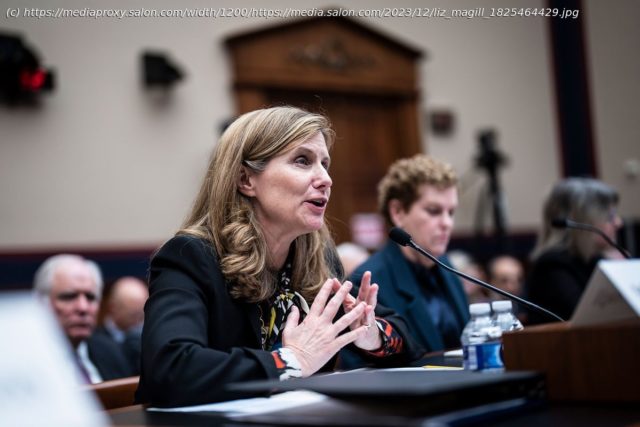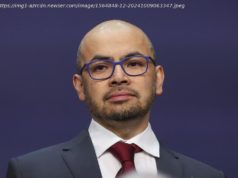Controversy around Elise Stefanik’s antisemitism hearing fueled by „hypocrisy“ and PR concerns: legal experts
University of Pennsylvania president Liz Magill was forced to resign over the weekend amid widespread backlash resulting from her testimony on Capitol Hill last week in a congressional hearing on campus antisemitism. That has hardly put the issue to rest. The viral video of questioning by Rep. Elise Stefanik, a New York Republican, and the resulting furor that led to Magill’s ouster, have ignited discussions about exactly how much educational institutions can or should restrict free speech.
Magill, who had led the Ivy League school for less than two years, stepped down on Saturday. The chair of Penn’s board of trustees, Scott Bok, announced the decision in a letter and also submitted his own resignation. Magill was forced out after struggling to give a clear answer to a question, during a House education committee hearing, on whether calls for genocide against Jewish people would violate Penn’s code of conduct.
„One down, two to go,“ Stefanik posted on X, an apparent reference to Harvard president Claudine Gay and MIT president Sally Kornbluth, who also testified at the hearing.
After Magill’s comments, six members of Congress from Pennsylvania sent a letter to the school’s board of trustees calling for her resignation. Ross Stevens, a hedge fund manager and major Penn donor, threatened to withdraw a $100 million gift to the university.
There has been considerable division of opinion about Magill’s resignation and its consequences, not all of it along predictable partisan lines. While many people, including many Democrats, have agreed that she could no longer lead a major university, others see this incident as a setback for free speech, warning about the potential threat to academic freedom and open debate. Many such concerns revolve around the impact of external influence from donors and politicians shaping campus codes of conduct and discourse.
Protecting speech that “falls short of misconduct” is “particularly important” in situations where “critical social and political discussions” take place, Alex Morey, an attorney at the Foundation for Individual Rights and Expression, told Salon. That’s even true, or especially true, she said, when such discussions involve rhetoric that ideological opponents find “very offensive and hateful.”
“We cannot shut down one side,” Morey continued. Even when free speech is likely to be upsetting or distressing to many people, „that doesn’t mean we should empower the government or college administrators to decide which side is right. That’s what any First Amendment analysis is about at its core.”
The legal requirements are somewhat different for different kinds of educational institutions, Morey explained. Public universities are required by the First Amendment to respect free expression on campus, while private institutions like Penn, Harvard or MIT have committed to similar principles and are generally required to honor those promises under a contract law theory.
Such promises are “critical” to a university’s mission of “truth-seeking and knowledge building,” Morey added, which requires an environment where a variety of viewpoints can be “raised, debated and discussed.“
Frederick Schauer, a free speech scholar at the University of Virginia School of Law, elaborated on Morey’s point that major private colleges and universities, including Ivy League schools like Penn, have voluntarily chosen to adhere to First Amendment principles although they are not legally required to.






